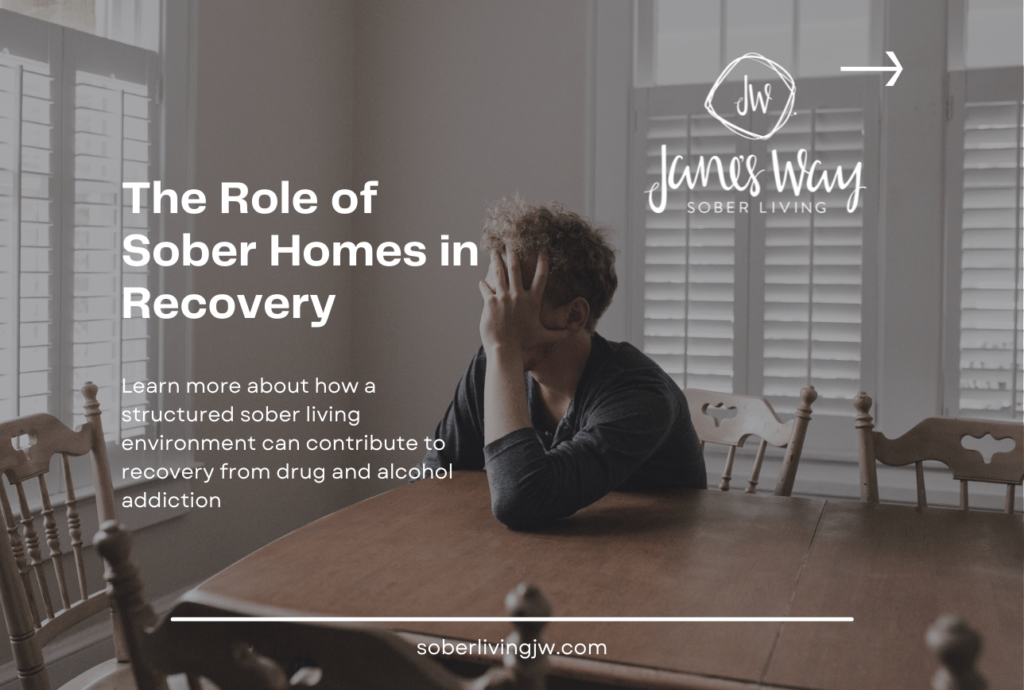Because there are so many different elements that lead to addiction, it’s not easy to overcome. The surroundings and persons around a person who is attempting to remain sober may play an essential function in his or her recovery, in addition to the physical and mental components. The majority of individuals who struggle with substance abuse have companions who suffer from the same condition, making maintaining sober that much more challenging. For all these reason, the role of sober homes in recovery cannot be overstated.
What Is a Sober Home?
Individuals who are attempting to live addiction-free lives may find sobriety housing to be beneficial. After quitting the habit, frequent relapses are common as a result of staying in the same environment. As a result, recovering addicts may be helped to quit drug or alcohol abuse by entering a new surroundings that emphasizes individual well-being. Most sober living houses do not provide formal treatment, according to Polcin, Korcha, Bond, and Galloway’s research. Yet the vast majority of people recommend joining self-help groups. Being a member of such a co-living space is contingent on abiding by house regulations like paying the rent, staying sober, and actively participating in the house’s activities.
While they may be found across the United States, sober living residences are primarily from California. The ‘strong manager’ pattern, which relies on one individual to implement the home rules, and the “social model approach,” which encourages residents to take an active role in the decision-making procedure, are two examples of organizational patterns used by dwellings. For individuals who want to alter their lives, SLH may be understood as a step forward in recovery that provides structure and a new way of living.
The Sober Living Community Philosophy
Despite their differences in approach, nearly all SLH insist on participating in 12-step recovery programs, according to the study’s authors. In addition to numerous other duties aimed to assist them maintain their sobriety, residents are also encouraged to locate a sponsor or participate in optional events that aid AA or NA meetings. One of the most essential ideas of sober homes, according to the researchers, is meeting new people and building a social network that helps addicts or drinkers stay sober. Residents with more experience are frequently in charge of assisting new residents to adapt to the new society or giving them support when they need it. One of the fundamental concepts of every sober living home is to build a new healthy circle of friends and avoid all contact with persons who might trigger the urge to misuse drugs. In this way the role of the sober home in recovery is to provide a new foundation for fellowship.
Sober Homes Contribute to Better Outcomes
According to the findings of Polcin, Korcha, Bond, and Galloway’s research, a vast majority of people reduce or discontinue using alcohol or narcotics in the first six months. On a six-month and yearly scale, some houses have recovery rates that climb from 11% to 68%, with more than 40% of the inhabitants continuing to show improvements over the eighteen-month period. In comparison to self-governed residences (Oxford Houses), supportive, structured sober living complexes like Jane’s Way Sober Living have better results. Residents spending time in controlled environments before entering an SLH contributes to such impressive outcomes in part, but the changes are primarily due to the new environment that encourages a healthier lifestyle and social interactions.
Why Continue to a Sober Living After Rehab?
A sober home may be the perfect option for those who are looking for a post treatment program dwelling that provides living amenities. These centres are popular among people who have completed rehab for their addiction but are not prepared to return to independent living without assistance. Choosing a transitional home rather than a halfway house has numerous advantages. For example, when it comes to important topics such as recovery, employment, volunteering, and education, you benefit from a step-by-step recovery program, ongoing support, and help.
Early in the recovery journey, addicts might experience a lot of stress about returning to their usual daily life. They’re concerned about going back to work and being exposed to triggers or temptations that may lead them to relapse. Because it provides a supportive atmosphere where the residents can progressively return to their lives, often a transitional sober living home is the finest option following recovery.
In addition to a safe and comfortable living environment, a transitional sober living home provides several services. If you should need it, there is a possibility of support for job skill training, interview coaching, and academic guidance. An in-house manager oversees and mentors all residents at most transitional sober living apartments. There are often multiple group activities available, both therapeutic and recreational, for those who live at transitional housing because they share the same goal of sobriety.
The residents of a sober living home may build a strong social network in transitional residences, which can assist them cope with life after recovery. Since it allows you to have others to relate to and talk with while you return to normal life, having a group of friends who have gone through a similar addiction experience can be extremely beneficial.
You are not an inpatient, so you have much more freedom and independence than those who live at a halfway house. When you arrive at a transitional residence, there are restrictions in place governing drug and alcohol usage, which all residents must follow. In addition, some residents may have a curfew, be required to attend outpatient treatment, or otherwise engage in recovery-oriented activities.
If you’re ready to request residence at one of our sober living home locations, or if you just have questions about the role of sober homes in recovery, give us a call at (855) 762-7375 or email us at admissions@soberlivingjw.com

